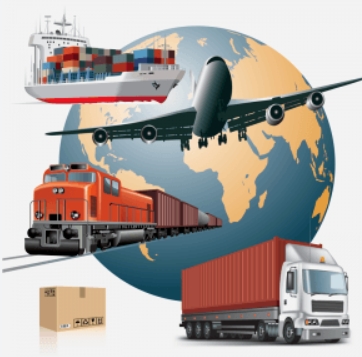In today's fast-paced world, choosing the most efficient and reliable mode of transportation is crucial. With various options available, it can be challenging to determine which mode is truly the best. This blog post aims to explore and analyze different modes of transportation, considering factors such as speed, cost, environmental impact, and convenience. By the end, you'll have a comprehensive understanding of the best mode of transportation for your needs.
- The Speed Demon: Air Travel
Air travel has revolutionized the way we explore the world. With its unparalleled speed, airplanes can transport us across continents in a matter of hours. Whether it's for business or leisure, air travel offers unmatched efficiency, especially for long-distance journeys. However, it comes at a higher cost and contributes significantly to carbon emissions, making it less environmentally friendly. - The Reliable Workhorse: Railways
Railways have long been a staple of transportation, providing a reliable and efficient mode of travel. With their extensive networks, trains offer connectivity to both urban and rural areas. They are known for their punctuality, making them ideal for commuting and long-distance travel within a country or region. Additionally, trains are relatively eco-friendly, emitting fewer greenhouse gases compared to other modes of transportation. - The Versatile Champion: Road Trips
Road trips offer a unique and flexible way to explore the world. Whether it's by car, motorcycle, or bicycle, road trips provide the freedom to choose your own route and make spontaneous stops along the way. They are perfect for travelers who enjoy the journey as much as the destination. However, road trips can be time-consuming, especially for long distances, and are subject to traffic congestion and road conditions. - The Eco-Friendly Alternative: Cycling
Cycling has gained popularity as a sustainable mode of transportation. It offers numerous benefits, including improved health and reduced carbon footprint. Cycling is ideal for short-distance commuting, providing a cost-effective and environmentally friendly option. However, it may not be suitable for everyone, depending on factors such as physical fitness, weather conditions, and infrastructure availability.
Conclusion:
Choosing the best mode of transportation depends on various factors, including distance, speed, cost, environmental impact, and personal preferences. While air travel offers unparalleled speed, railways provide reliability, road trips offer flexibility, and cycling promotes sustainability. Ultimately, the best mode of transportation is subjective and varies based on individual needs and circumstances. Consider your priorities and make an informed decision that aligns with your values and requirements.




More Stories
What Makes the Electric Farm ATV Vehicle a Serious Tool for Off-Road Terrain?
Door to Door International Container Shipping as Foundation for Predictable Global Trade
Discover the Advantages of TOPSTAR Electric Bikes for Commuting: Reviews Inside!